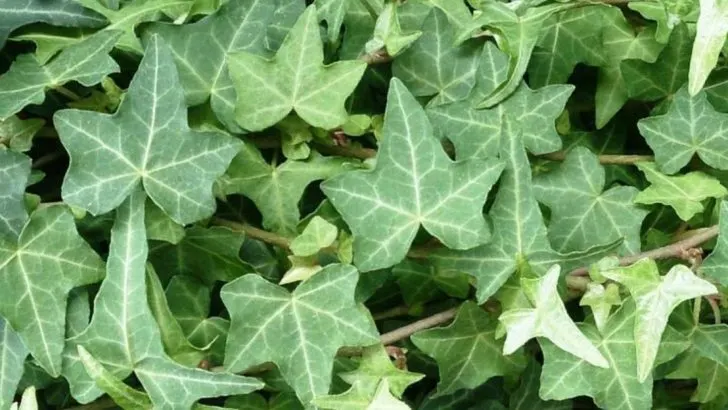Some plants may be beautiful in the garden, but they become a daily nuisance when planted near walkways. Overgrown foliage, thorns, messy blooms, or slippery leaves can turn a charming path into a frustrating — or even hazardous — area.
In this article, we’ll reveal 9 plants best kept away from high-traffic edges, along with 9 neat, low-maintenance alternatives that stay compact, behave well, and keep your walkways looking polished and safe. These tidy choices offer style without the stress.
Because a great garden shouldn’t trip you up on the way in.
Bamboo

Known for swift growth and towering height, bamboo often becomes unmanageable near paths. Its roots spread aggressively, potentially lifting and cracking pavement. Opting for this plant can lead to frequent maintenance and unexpected repairs. Its strong roots are not walkway-friendly.
Instead, consider Blue Fescue. A compact ornamental grass, it offers a gentle touch without overwhelming the area. Its silvery-blue hue adds a calming presence, perfect for edging paths and providing a neat appearance year-round.
English Ivy
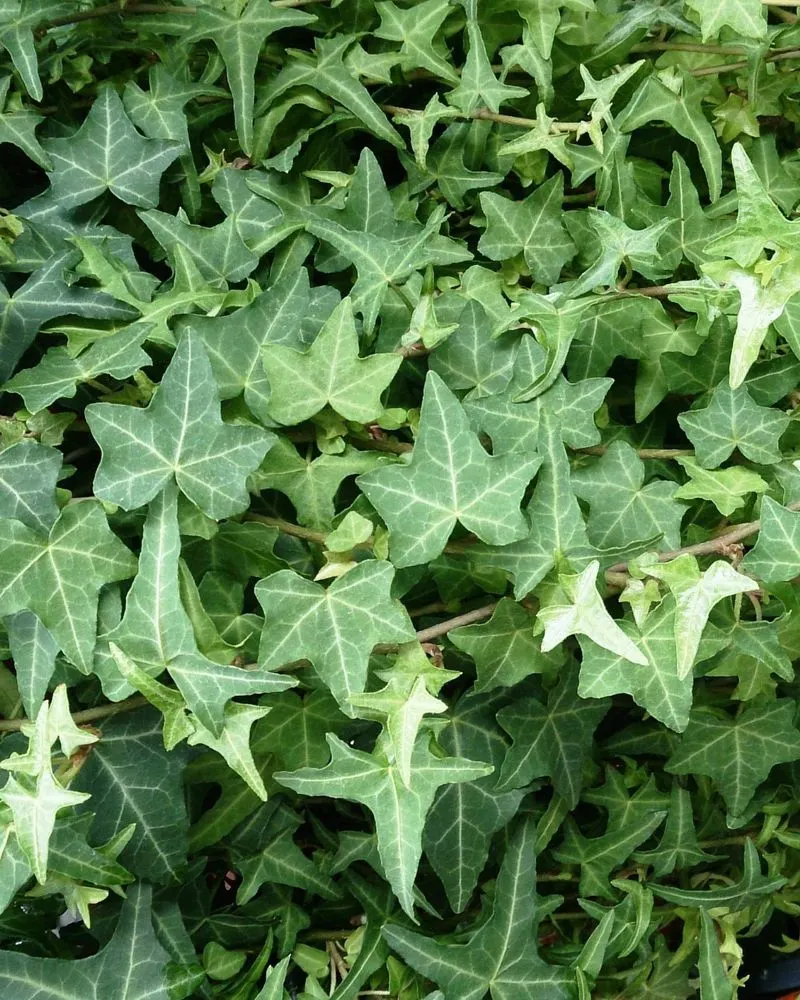
English ivy may seem charming, but its tenacious nature is troublesome. Clinging and climbing, it can damage walkways and nearby structures. Its invasive habit makes it a poor choice for well-kept paths.
For a more manageable option, choose Creeping Thyme. This fragrant groundcover spreads gracefully, filling gaps between stones without overpowering the area. Its tiny purple blooms attract pollinators, adding life and color to your walkway.
Mint
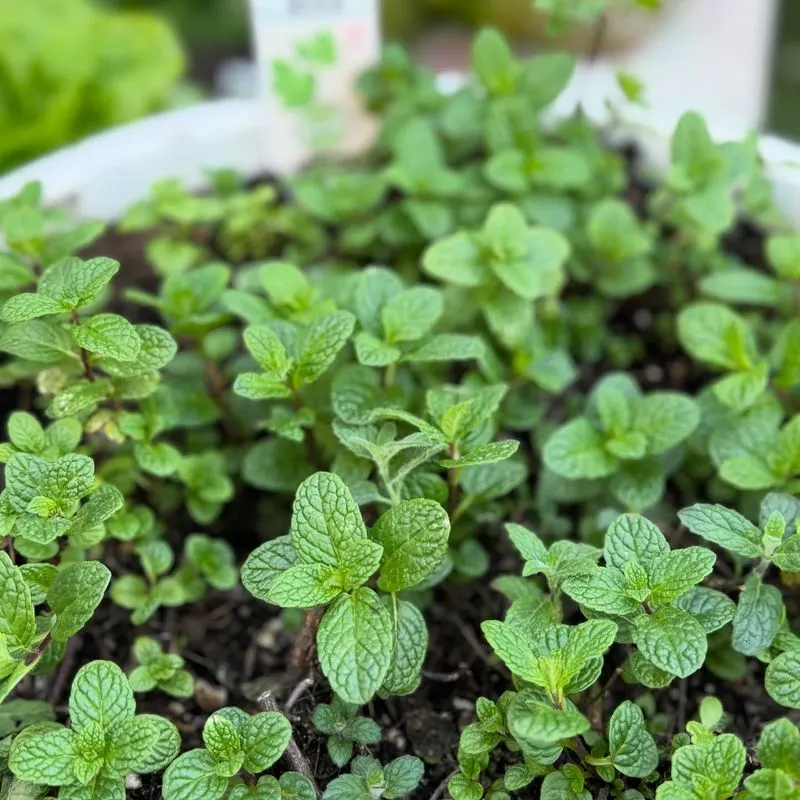
While mint offers delightful aroma and culinary uses, it often oversteps its boundaries. Its rapid growth and spreading roots can encroach on walkways, demanding constant control.
For a tidier herb, try Lavender. Known for its fragrant purple flowers, lavender remains contained, providing elegance without chaos. Its soothing scent and compact form make it an ideal companion for pathways.
Russian Sage
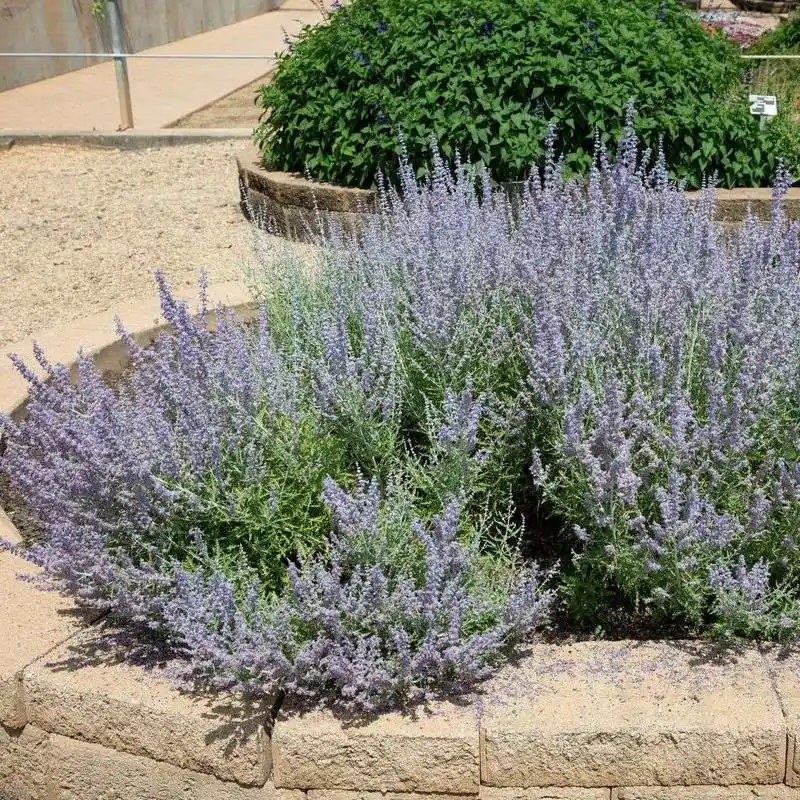
Russian sage is admired for its beauty, but its sprawling nature can dominate walkways. With woody stems and a tendency to spread, it requires frequent pruning to keep paths clear.
Instead, choose Salvia. With a similar hue and more upright growth, salvia offers structure and color without the headache. This plant stays neat and is easy to maintain, making it a walkway-friendly choice.
Creeping Jenny

Creeping Jenny’s vibrant leaves are eye-catching but problematic near paths. Its creeping habit can overtake walkways, creating a slippery hazard when wet.
A better alternative is Sedum. This succulent groundcover offers a similar visual appeal without the invasiveness. It thrives in sunny spots, providing texture and interest without overtaking other plants or surfaces.
Japanese Knotweed
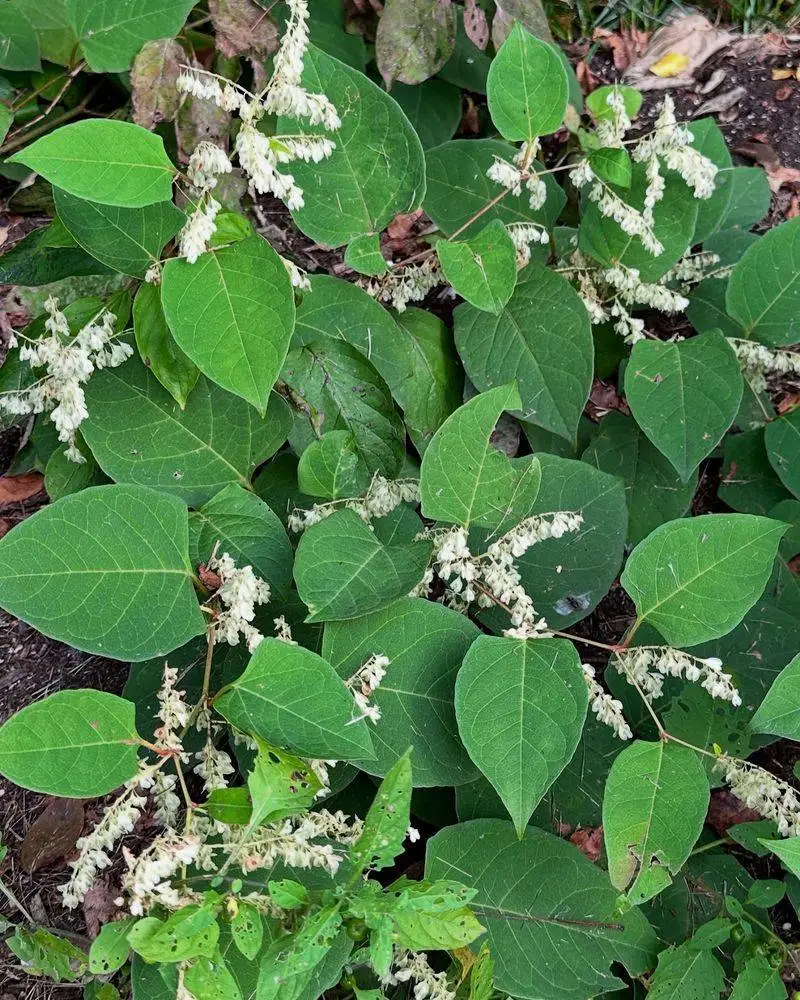
Japanese knotweed is notorious for its invasive nature and destructive roots. It can quickly dominate an area, causing damage to walkways and nearby structures.
For a safer choice, consider Feather Reed Grass. This ornamental grass provides height and movement without the aggressive spread. Its upright form remains tidy, making it suitable for lining paths with elegance and ease.
Wisteria
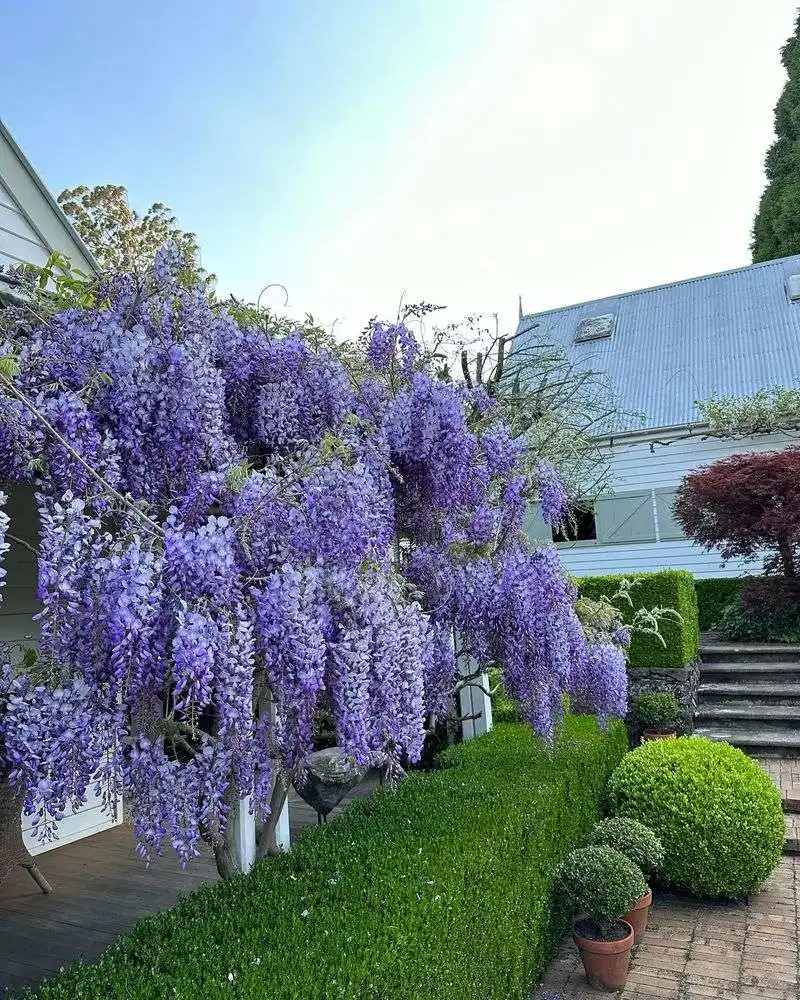
Wisteria’s cascading blooms are stunning, but its vigorous growth can overwhelm walkways. The heavy vines climb aggressively, posing structural risks.
For a less invasive alternative, try Clematis. This climber offers similar beauty with a more restrained habit. Its delicate flowers add charm without the maintenance burden, making it a graceful addition to any garden path.
Trumpet Vine
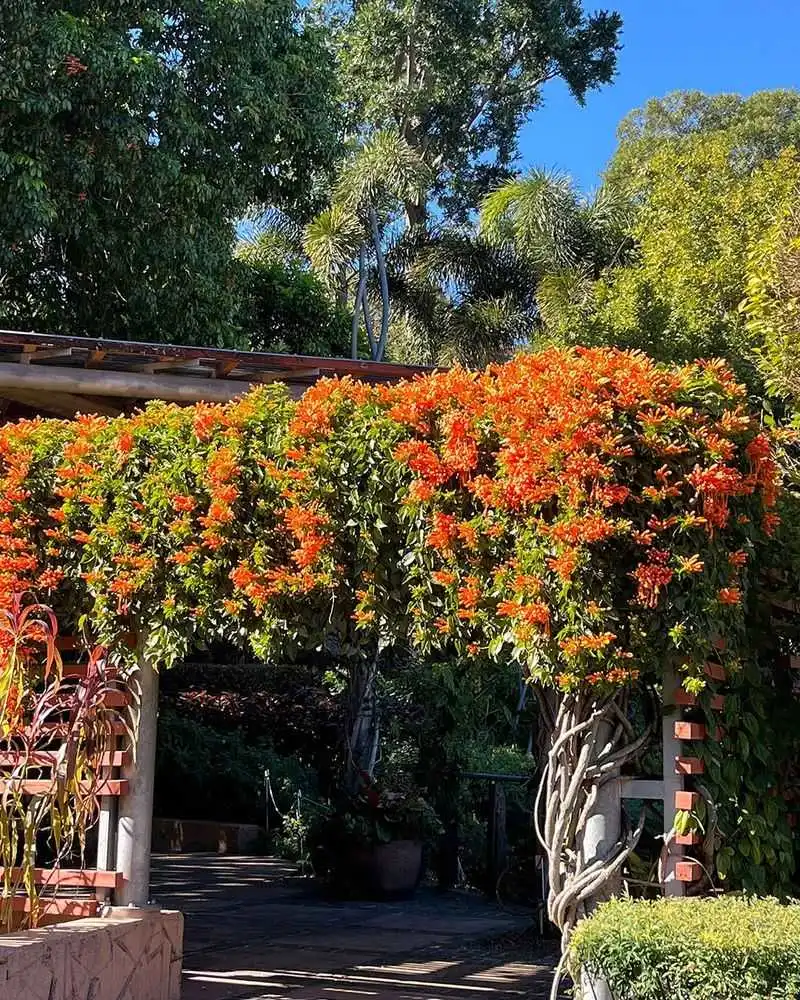
Trumpet vine’s vibrant flowers attract hummingbirds, but its aggressive growth can disrupt walkways. Its roots spread rapidly, causing cracks and upheavals.
Instead, choose Honeysuckle. This plant offers sweet fragrance and beautiful blooms without the chaos. It remains in check and enhances pathways with its inviting scent and manageable growth.
Privet
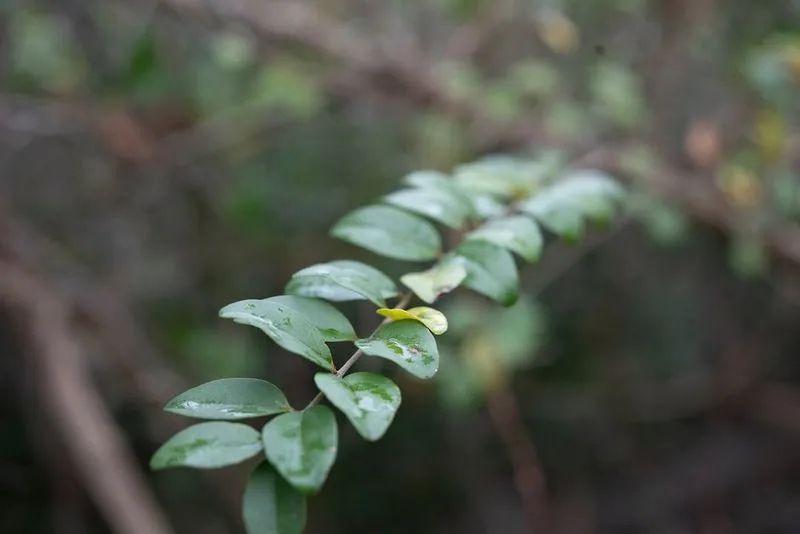
Privet hedges are favored for privacy, but their dense growth and extensive roots can encroach on walkways. Frequent trimming is necessary to maintain shape and prevent overgrowth.
For a neater option, try Boxwood. Known for its compact form and easy shaping, boxwood provides a clean, refined look. Its low maintenance nature makes it an excellent choice for walkway borders.

